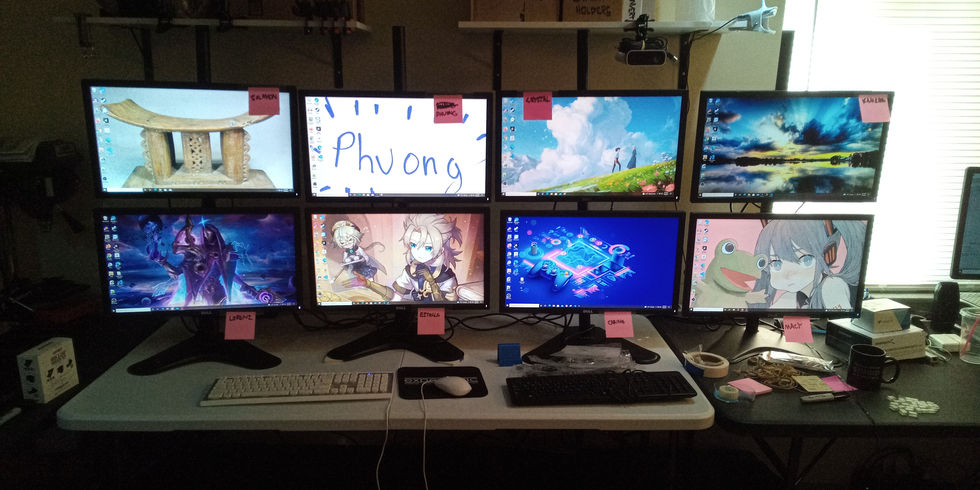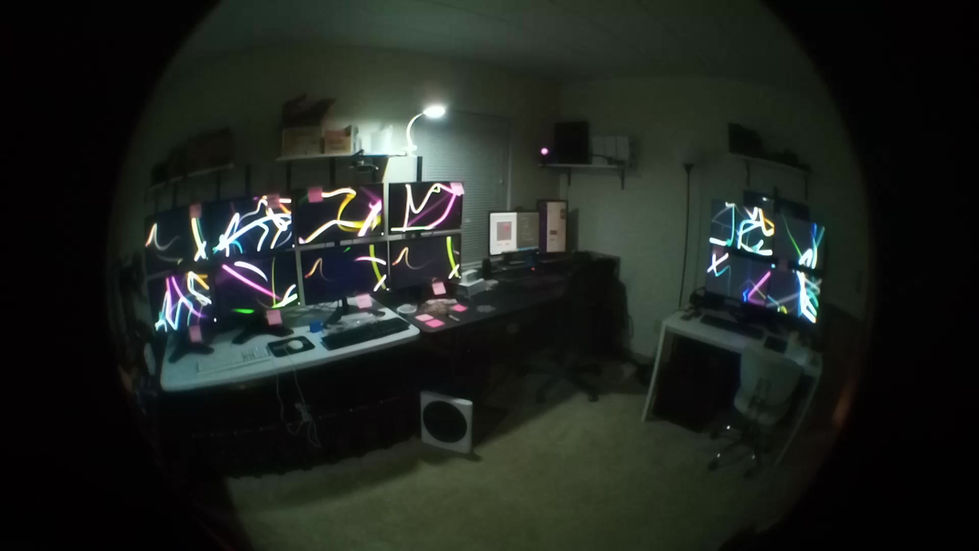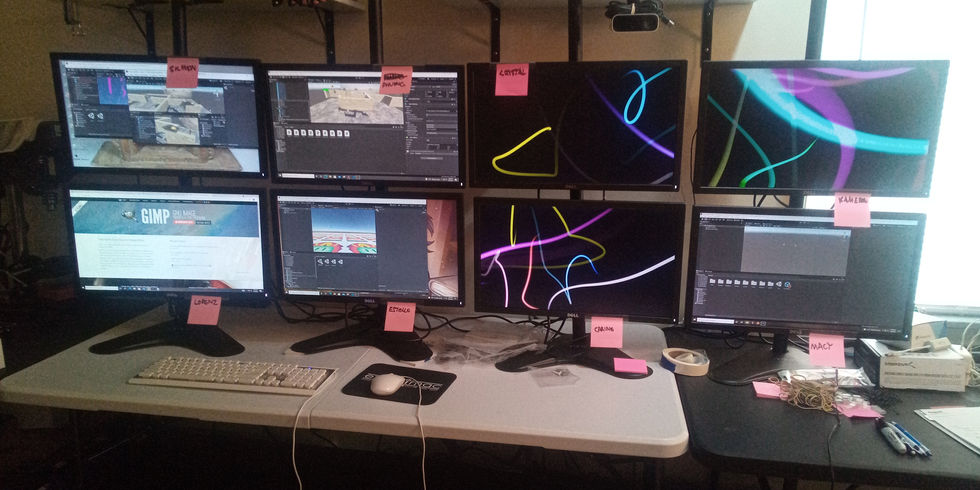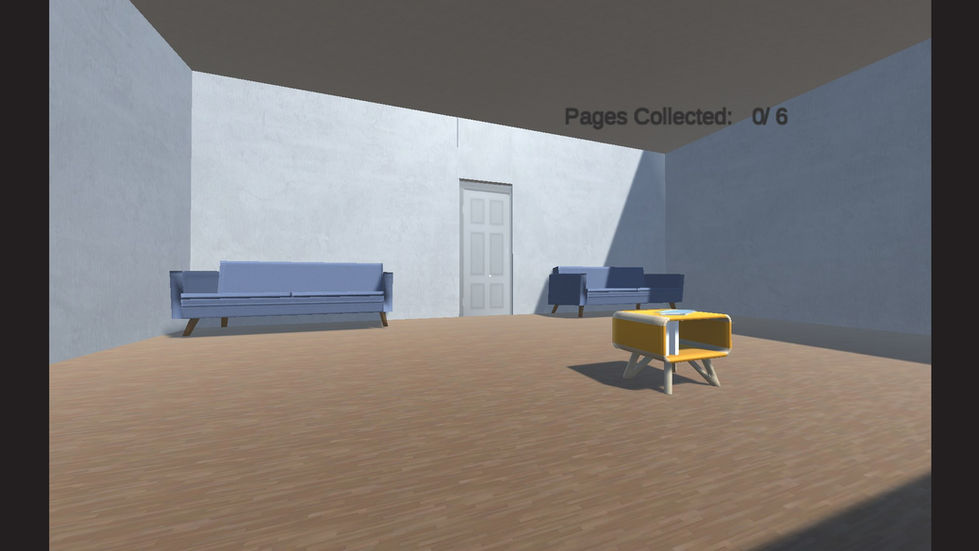Create Your First Project
Start adding your projects to your portfolio. Click on "Manage Projects" to get started
SAMS 2021 Remote Game Development
Institution
Carnegie Mellon University
Department
Center for Student Diversity and Inclusion
Date
July 6 – August 13, 2021
Team 1
Team 3
[ELECTIVE DESCRIPTION]
The exploration into the game development pipeline with CMU's Entertainment Technology Center (ETC) in Summer 2021 will focus on creating engaging experiences with an emphasis on play. Participants in the program will learn industry-standard game creation tools, pitch concepts, co-create prototypes, and deploy a playable game using Unity (WebGL) by the project’s end. A core objective of the project-based learning challenge is to provide insight into the multifaceted roles and applications found in the realm of game design and development.
[GAME DEVELOPMENT ELECTIVE STUDENTS]
Solomon Adenaike
Sergio Rodas Leal
Estelle Balsirow
Kameron Prim
Macy Walker
Lorenz Driza
Phuong Ho
Carine Akil
Alicia Lin
[PURPOSE]
Enhancing the academic preparation of ethnic minority students and other underrepresented populations in STEM fields.
[SAMS FULL PROGRAM DESCRIPTION]
The Summer Academy for Mathematics and Science is a six-week, rigorous residential experience for rising high school seniors who have a strong interest in computer science, engineering and/or natural science. Carnegie Mellon subsidizes the cost of tuition, room and board for all participants.
The program’s curriculum focuses on assisting students in developing mastery and execution of critical concepts in higher-level, collegiate math, programming, and science. In addition, students will participate in one six-week hands on project designed to expose and engage them to the wonder and excitement of problem solving and innovation. Project outcomes will be showcased to the campus community during the program’s closing symposium.
[TARGETED AUDIENCE]
• Rising high school seniors
• Ethnic minority students ● Economically disadvantaged
• Under resourced school districts ● First Generation
• Underrepresented groups in STEM
[EXTENDED POSTMORTEM STATEMENT]
We set up the 12x 1060 Desktop computers to remotely teach the ETC SAMS Game Development Course 2021 for CMU's Summer Academy of Math and Science pre-college program.
I got my IT hat on and reinstalled Windows 10 on each of the machines with all necessary software (Unity, Blender, GIMP, etc.) according to Steve's advice before the start of the program.
This took me about 2-3 days to setup all of the hardware and monitors and hardwired ethernet connections, and another 2-3 days to set up and install all of the software.
I was actually quite nervous about how this would play out, but by the end of the program, I was genuinely surprised at how well this worked out!
There were 10 students total, of which 1 student bailed out midway during the course. 9 students pulled through the entire duration of the program.
The first day was kind of rough as we had to create Parsec accounts for each student and make sure the connections were all solid.
(Trying to do email verifications back and forth over zoom to confirm personal account creation was admittedly somewhat of a security risk, so in the future, I'll probably get a "team plan" and send link invites to streamline this process.)
After the first day, everything ran just as I had hoped - it was like running a game development coding course in person, as I (the instructor) could see what every student was doing at all times during lecture and office hours.
Whenever a student would get stuck on some concept, I was able to see within 10 seconds where the student got stuck and how to fix their code and help the student.
(Attempting to do this via plain Zoom screen share would have been quite difficult, as a student getting stuck would shave off almost 1-5 minutes every time a student got stuck. Students got stuck very often, and with 10 students, we simply would not have had enough time to make this work with Zoom only.)
Midway, we switched from lecture mode to team project mode.
Admittedly, this was not as good as if the student teams were all within the same room, but this was certainly better than if the students were all apart - the remote desktops acted as the "glue" that held the teams' productivity and work together.
This remote desktop solution was also great because not all of the students had high speed internet connections. Gigabit remote desktop allowed us to collaboratively transfer large files in a few seconds to minutes as opposed to minutes to hours.
I kept all the machines on and wired to ethernet 24/7 so that the students could log in at any time. I've noticed a few of the machines buzzing with activity at odd hours of the night (10pm-2am), so that was cool to see.
(*Cool* might be the wrong choice of vocabulary, as my room got pretty warm at times from all the computers running 24/7.)
We did have one *short* problem we encountered over the course of the program: we had a 10 minute blackout at one point due to rain and lightning outside my apartment during a lecture, which killed the power and internet and temporarily terminated all student connections at the remote desktop lap.
This is understandably the primary weakness in any centralized system; that taking out the center of connections will wipe out all productivity until connections are restored.
(Comparatively, a decentralized work set up would allow students to work independently even if the main "hub" was taken out. Pros and cons.)
The blackout only happened once, and the remainder of the program ran smoothly.
The 3 student teams ended up making 3 games, exported to WebGL and uploaded to Simmer.io so that everyone with an internet connection can easily load and play the game.
To conclude, I think this was a great success - this was the first remote game development workshop made possible with the generosity of CMU's Entertainment Technology Center and the Summer Academy of Math and Science.
And again, this would not have been possible without the generous support of Steve Audia and Jon Underwood - so thank you, thank you, and thank you both again!





























